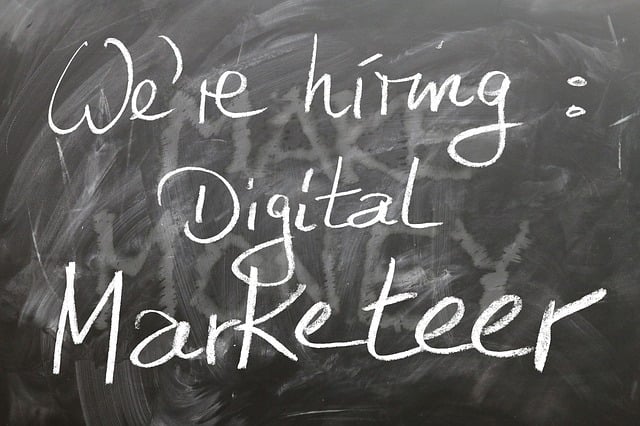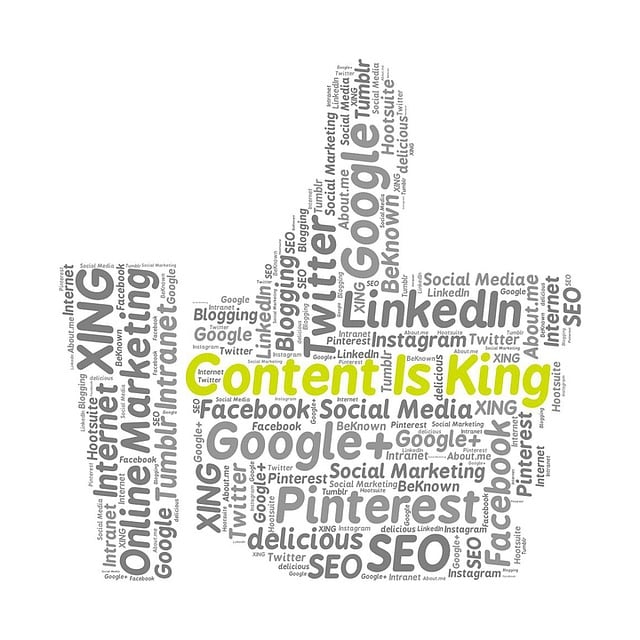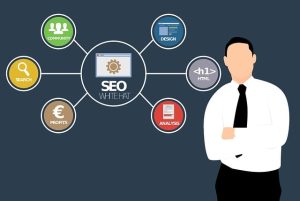The Content Marketing Summit showcases how AI, through NLP and ML, is revolutionizing content creation by personalizing it for specific audiences, boosting engagement and conversions. By automating repetitive tasks, AI frees up human experts to focus on strategy. The Summit emphasizes data-driven decision making with AI analytics, predicts content performance, and delivers hyper-personalized experiences. Ethical considerations like bias and privacy must be addressed as AI becomes more prevalent in content marketing. Looking ahead, trends include personalized content, AI-driven analysis, voice search optimization, and integration of AI chatbots, NLP, and computer vision.
“Discover the future of content marketing at our upcoming Content Marketing Summit, where we explore the transformative power of AI. This event delves into the latest advancements, from AI’s role in strategic creation and data-driven optimization to its ability to personalize content on a mass scale.
Join us to navigate the ethical landscape of AI generation, uncover industry trends, and gain insights into best practices for leveraging this technology. Be among the first to unlock the full potential of AI in your marketing strategies.”
The Evolution of Content Marketing: Unlocking the Potential with AI

The landscape of content marketing has evolved significantly over the years, driven by technological advancements and changing consumer behaviors. In the past, creating compelling content meant relying heavily on creative teams and intuitive human judgment. However, with the advent of artificial intelligence (AI), a new era of possibilities has opened up for marketers. AI is transforming how businesses craft, distribute, and measure the impact of their content, making content marketing more efficient, personalized, and effective than ever before.
The Content Marketing Summit often serves as a platform to explore these innovations. Through natural language processing (NLP) and machine learning algorithms, AI can analyze vast amounts of data to understand audience preferences and tailor content accordingly. This level of personalization ensures that each piece of content resonates with its intended audience, driving higher engagement rates and conversions. Moreover, AI automates repetitive tasks like content generation, optimization, and distribution, freeing up human resources to focus on strategic planning and creative direction, ultimately unlocking the full potential of content marketing in today’s digital landscape.
Revolutionizing Strategies: AI-Driven Content Creation for Maximum Impact

In today’s digital era, AI-driven content creation is no longer a futuristic concept but a game-changer for businesses and marketers. The Content Marketing Summit has been at the forefront of this revolution, exploring strategies that leverage artificial intelligence to produce high-quality, personalized content at scale. By integrating AI technologies like natural language processing (NLP) and machine learning (ML), brands can now automate repetitive tasks, such as content generation and optimization, freeing up resources for more creative endeavors.
This shift towards AI-powered content event has significant implications. Marketers can now create targeted campaigns that resonate with specific audiences, resulting in increased engagement and conversion rates. Moreover, AI enables dynamic content personalization, ensuring each user receives tailored experiences that drive better outcomes. With these advanced strategies, the Content Marketing Summit aims to empower businesses to stay ahead in a competitive market, where delivering impactful and relevant content is the key to success.
Data-Informed Decisions: Leveraging AI Analytics for Content Optimization

At the Content Marketing Summit, a key focus area is data-driven decision making, where AI analytics plays a pivotal role in optimizing content strategies. By harnessing machine learning algorithms, marketers can gain valuable insights from vast datasets, enabling them to make informed choices and tailor their content to target audiences. This involves analyzing user behavior patterns, engagement metrics, and market trends to identify what resonates with the audience.
For instance, AI can predict content performance, helping content creators prioritize topics, formats, and distribution channels that are most likely to engage viewers. It enables marketers to refine content strategies in real-time, ensuring every piece of content is optimized for maximum impact. This data-informed approach enhances efficiency, improves ROI, and drives better results in content marketing efforts.
Personalization at Scale: AI's Role in Tailoring Content to Audiences

At the heart of modern content marketing lies AI’s remarkable ability to personalize experiences at scale. This is particularly evident during events like the Content Marketing Summit, where thousands gather to explore industry trends and best practices. With AI, event organizers can leverage sophisticated algorithms to analyze vast amounts of attendee data, from preferences and past interactions to browsing behaviors and engagement patterns. This insights-driven approach allows for hyper-personalized content delivery, ensuring that each attendee receives material tailored to their unique interests and needs.
Imagine a scenario where an attendee expresses interest in AI-driven marketing strategies during breakout sessions. Thanks to AI, the platform can recommend relevant workshops, speakers, and networking opportunities in real time, creating a deeply engaging experience. This level of personalization not only enhances the overall event value but also fosters stronger connections between content creators, brands, and their audiences, setting new standards for future Content Marketing Summits and industry events worldwide.
Ethical Considerations: Navigating Bias and Privacy in AI Content Generation

As AI-powered content generation gains traction, ethical considerations become paramount, especially in the realm of content marketing events like the Content Marketing Summit. Bias and privacy are two significant challenges that demand attention. AI models learn from vast datasets, but if these data reflect societal biases or exclude diverse perspectives, the generated content may perpetuate or amplify existing inequalities. For instance, an AI writing about careers might reinforce gender stereotypes based on historical data.
Privacy is another critical issue. AI systems often require access to personal data for training and customization. Protecting user privacy during content generation processes is essential to maintaining trust. Event organizers must ensure that any AI tools used respect data privacy regulations like GDPR and CCPA, ensuring that participant information remains secure and confidential. Transparent practices regarding data collection and usage are key to fostering a positive perception of AI-powered content events.
The Future of Content Marketing: Trends, Tools, and Best Practices

The future of content marketing is here, and it’s powered by Artificial Intelligence (AI). As technology advances, AI has become an indispensable tool for marketers, revolutionizing how they create, distribute, and measure content effectiveness. At the forefront of this evolution is the Content Marketing Summit, where industry leaders gather to discuss cutting-edge trends, share insights, and showcase innovative tools that are reshaping the landscape.
Trends such as personalized content creation, AI-driven data analysis, and voice search optimization are gaining momentum. Marketers are leveraging machine learning algorithms to understand consumer behavior at a granular level, enabling them to deliver tailored experiences that resonate with their target audience. Best practices include integrating AI chatbots for customer engagement, utilizing natural language processing (NLP) for content summarization and translation, and employing computer vision for visual content analysis. These advancements not only enhance efficiency but also ensure higher quality, relevance, and impact in content marketing strategies.
